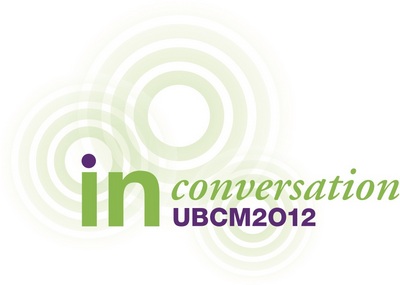Local government knocks on the province's doors
Meetings with Ministerial level government officials are always important for local governments and at every Union of B.C. Municipal governments conference access to the provincial government is likely the must critical part of the annual gathering.
In late September representatives from the Boundary municipalities and regional district from Midway through Christina Lake attended the week long meeting in Victoria to learn from each other, make decisions that ensure the provincial government response, and meet with staff and Ministers on key issues.
Midway’s mayor Randy Kappes met with the RCMP, the Minister of Forests and B.C. Ambulance to address local needs. The RCMP had indicated that they would be building a new detachment in Midway, but Kappes was told that it is not even in their five-year planning cycle so could be a long-term vision.
“We had the same question that every community this size has – how can we make our station more viable and make it a place where we can retain the (ambulance paramedics),” Kappes added on his meeting with BCAS to discuss the constant struggle to retain their paramedics in a setting with few callouts. “We went to see with their new relationship to the ministry (of health) what that might mean to us in alleviating that issue.”
Kappes said that the new work relationship between the Park View Manor seniors housing facility and the paramedics. The attendants are available on call overnight for the manor which gives them more hours of work, but doesn’t solve the challenge of keeping their paramedics.
But one of the key meetings that Kappes attended was the Mayor’s caucus. While some politicians see the caucus as just a power grab by mayors, Kappes felt that it is a great opportunity to network with other mayors around common concerns. The inconsistency in infrastructure funding available to municipalities was an issue they could all get behind.
“Senior levels of government talk to us about getting ahead instead of reacting, it makes it difficult to do when you don’t have that definite source of funding,” said Kappes. “That was one major concern that was shared (by all the mayors) and put forward as a concern that we supported the work of the FCM and UBCM to ensure that that infrastructure funding is looked at. I know granting works wonders for photo ops, but it makes it hard for us to plan seriously.”
Grand Forks’ mayor Brian Taylor similarly took advantage of the UBCM meetings to address key concerns for his constituents. Taylor missed the mayor’s caucus, choosing instead to participate in the discussion regarding the decriminalization and regulation of marijuana which then went on to be passed on the UBCM floor for a vote.
“The work had been done, the education had been done. There were enough people clearly supporting this for some good reasons,” said Taylor. “The opposition was very weak in terms of its rationale, and in fact on the Monday of the conference, it was about four or five active police who testified on one side in support of the current way of doing things, and academics and various other intellectuals on the other side. The balance was really clear at that meeting that the majority of people supported the scientific and rational approach.”
Taylor noted that the overall process for the conference was one of the best he had experienced in his three terms in office with resolutions handled well.
Both Taylor and regional district area D representative Irene Perepolkin joined in a meeting with staff from the Ministry of Forests, Lands, and Natural Resources in a discussion to create a regional forest, but were met with less than a positive result.
“We were trying to get an idea of if we are going to be successful in getting one or not,” said Perepolkin. “It seems they were saying there isn’t a piece of forest land big enough to support a woodlot or sustainable community forest.”
Top of the list for Christina Lake’s regional director Grace McGregor was to address the ongoing milfoil concerns for her area. McGregor met with Terry Lake, minister of environment, to talk about administrative support and assistance to get permitting to use the milfoil weevil which has potential to become a solution to their age-old weed problem.
McGregor also participated in a presentation to Premier Christy Clark from the province’s three beetle action coalitions on a report, Rural BC Project, which will be released soon to the public.
“The keynote speaker was Anna Maria Tremonte of CBC and she was fantastic,” said McGregor. “It’s always a really busy time and not the relaxation party many think it is at least for those of us who are serious about what we do.”
The next opportunity for this cross-seeding of ideas and government liaisons will be in September of 2013.






















